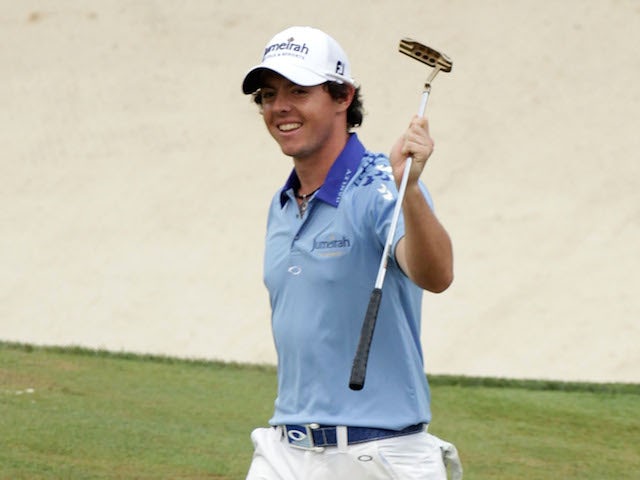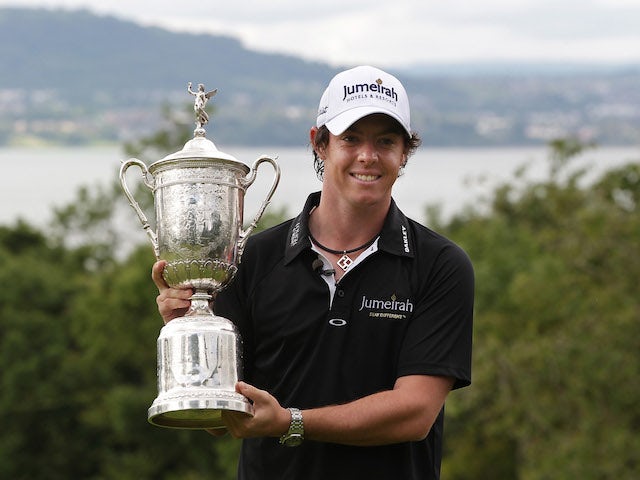After finishing in a tie for third place at The Open and the USPGA Championship during the second half of 2010, all eyes were on Rory McIlroy in 2011 as the Northern Irishman bid to win his first Major title. It appeared as though that moment would come at The Masters after he had managed to opened up a four-shot advantage ahead of the final round, before a remarkable collapse during Sunday's play saw him finishing as low as 15th position.
McIlroy reacted with top-five finishes at the Malaysian Open and The Memorial ahead of the US Open, which would be held at Congressional in Maryland. After missing the cut at the event in 2010 and requiring a positive response just two months after his Augusta nightmare, the pressure was on the world number seven to prove that he possessed the mental attributes required to not only win a Major crown, but to overcome what was undoubtedly the biggest setback of his career.
During the opening three days of the tournament, McIlroy would become a permanent fixture at the top of the leaderboard. After opening up a three-shot lead by the end of the first day, that would be extended to six shots by the midway point as he left the field in his wake. YE Yang was the only player within nine shots of the 22-year-old, but by the conclusion of Saturday's play, even the South Korean was eight shots adrift after a ruthless display from McIlroy.
 © Getty Images
© Getty Images
On this day four years ago, McIlroy would take to the course in Bethesda with one hand seemingly on the trophy, but with his Masters catastrophe still fresh in his mind, he couldn't afford to think too far ahead. However, any nerves were soon eased with a birdie on the first hole, which extended his advantage to nine after Yang could only make a four. Pars followed at two and three before McIlroy drained another birdie putt on the fourth to go 10 clear of the field with just 14 holes remaining.
McIlroy made heavy weather of the fifth but he continued to discourage the chasing pack by draining a putt from 15 feet for par, while at the sixth, he came within a whisker of sending his tee shot into the water before eventually surviving with another par. Playing partner Yang had struggled to make any inroads into McIlroy's considerable lead, but he got back to within nine with a welcome birdie to leave himself with the smallest of ambitions of getting back into it.
Both men made par at the seventh, but Yang was joined in second place by Freddie Jacobson, who was competing at the top of a Major leaderboard for the first time in eight years. As far as McIlroy was concerned though, pars were going to be enough and he registered another on the eighth, as did Yang. There appeared to be an opening for a birdie at the par-five ninth, but McIlroy failed to connect with a makable putt, and Yang clawed his way back to an eight-shot deficit at the turn.
 © Getty Images
© Getty Images
McIlroy hadn't been at his best during his first nine holes, but at the 10th, he produced one of the best shots that the tournament had ever seen. After watching Yang put his ball to within six feet of the hole at the par three, McIlroy followed with an aggressive hit of his own that landed inches below the top of a slope before rolling back down towards the hole for a birdie from no more than a foot. Both men would record a two to leave the Northern Irishman eight clear with eight to play, but the quality of his tee shot sent a message to Yang and the remaining challengers that he wouldn't give up his lead.
That effort took McIlroy to 17-under-par - the first time that the score had ever been reached in US Open history - and his ambitions increased to not only winning the tournament, but to setting a number of records in the process. The back nine would see McIlroy record bogeys either side of a birdie to leave him requiring a three on the last hole to end the four days on that total. His tee shot left him with a difficult approach, but the 22-year-old was able to set himself up on the edge of the green before recording par for a tournament score of 268.
McIlroy may have missed out on the magic 17-under, but his score was still the lowest ever recorded in 111 years of the US Open, while he became only the third player to shoot four rounds under 70 at the event, the first for 18 years. As for the rest of the field, Jason Day secured the runner-up spot for the second successive Major as Yang dropped back into a group of four players, which included Lee Westwood, Robert Garrigus and Kevin Chappell, in a tie for third place.








